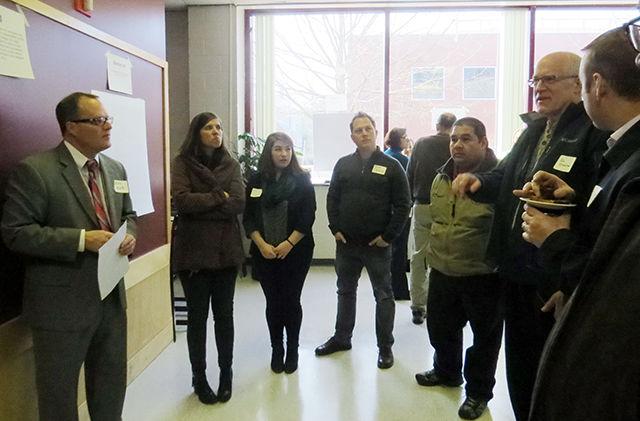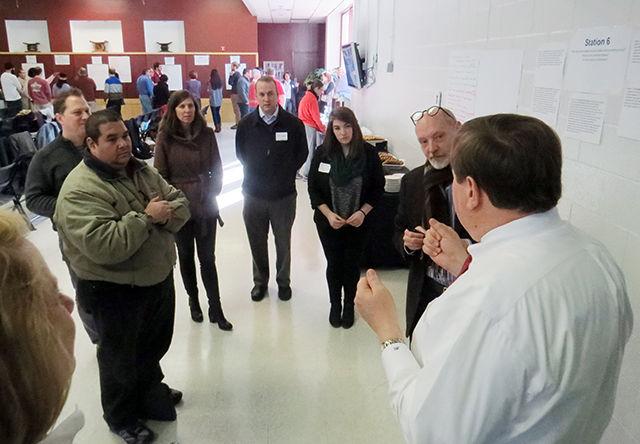NC State’s Sustainability Council held a town hall-style recruitment drive Wednesday to kick off the next phase of development for the future of sustainability at NC State. The town hall was open to all members of the NC State community to offer suggestions for ways to build on the successes the council has already achieved and to build connections that will eventually form the working groups that would see these ideas through to completion.
The university has reached the end of the five-year Sustainability Strategic Plan that has guided policy since April 2011 and is building the team that will form the next five-year strategic plan by fall 2016.
Since the last plan went into effect, NC State has reduced its water usage by 50 percent, its energy usage by 28 percent and its greenhouse gas emissions by 13.5 percent, according to Assistant Vice Chancellor for Facilities Operations Jack Colby.
The Sustainability Council was launched in September with a goal of broadening the communication network around sustainable practices for NC State administration through the formation of five working groups in charge of key areas including academics, community and culture, student leadership, operations planning and campus design and communications.
“It is clear that as we enter the fifth year of that plan that we’ve made great progress in all of the areas [we outlined], and we needed to be able to have the structure that would think about what’s next,” Colby said. “We have looked at that and said that one of the areas that we want to be sure that we improve is in reaching the students with our academic and research programs.”
The Student Leadership Working Group will be made up primarily of students from various groups around campus, according to Meghan Teten, director of the EcoVillage. Teten said the town hall was a good start for the next phase of the plan.
“I think the contributions we got were really helpful and also pointed out some areas where we need to advertise and promote those programs and opportunities that are already available but are obviously not that well known,” Teten said.
Surveys of students and staff conducted by the university have revealed that 69 percent of incoming students and 98 percent of staff consider sustainability an important value, which has further motivated the leadership of the council to reach out and mine these areas for support.
In May 2015, the student-led board of the NC State Sustainability Fund awarded $117,000 in grant-funding to 10 project proposals relating to furthering sustainability. These proposals included the solar umbrellas outside of Tucker Hall, which were installed last semester, as well as other projects slated to be completed this summer, including the installation of solar-powered waste compactors and an aquaponics system that will provide food for University Dining, according to Carla Davis, communications coordinator for the University Sustainability Office.
“We want sustainability to be the norm at NC State — not a separate function over here for the passionate few — but a part of the culture and everything we do,” Colby said.
Jack Colby, assistant vice chancellor for Facilities Operations, leads a group of potential Working Group members in a discussion of the ways to improve sustainability at NC State Wednesday in the Washington Sankofa Room in Witherspoon Student Center. NC State is among the top tier of universities nationally in sustainability rating. "There's nothing we can't do if we put our heads together," Colby said.









